General Election 2017: The battle for Clwyd South
- Published
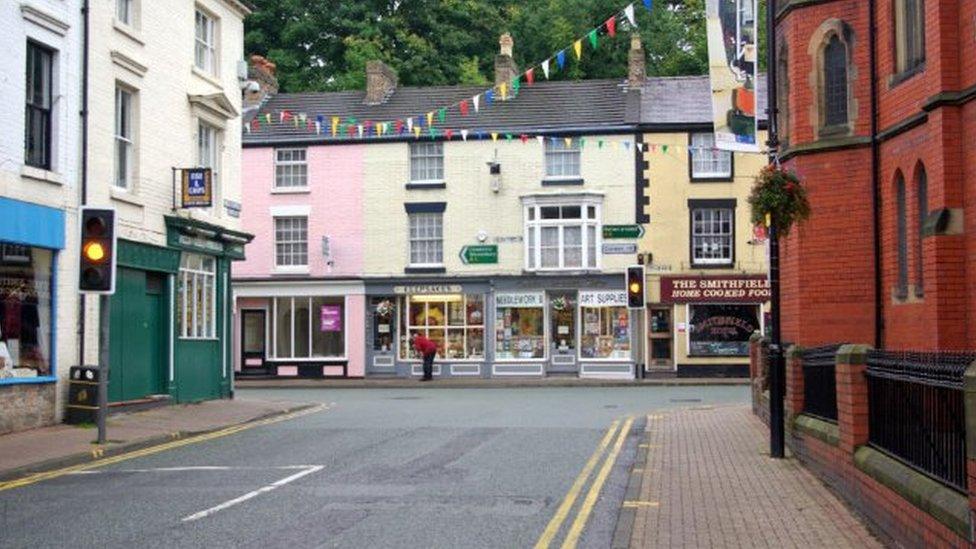
Llangollen is among the major settlements in the Clwyd South constituency
The last time I was in Llangollen, I was here to cover the Welsh Conservative spring conference in 2016.
That Tory takeover only lasted for a weekend.
In 2017, the Conservatives are planning a more permanent stay here in the Clwyd South constituency.
Labour has won Clwyd South in every general election since the constituency was established ahead of the 1997 election.
A young Boris Johnson stood for the Conservatives here in 1997 and finished second - 13,810 votes behind his Labour opponent.
In 2015, the Conservatives came second again, but this time the majority was only 2,402.
The Labour candidate, Susan Elan Jones, is defending the seat.
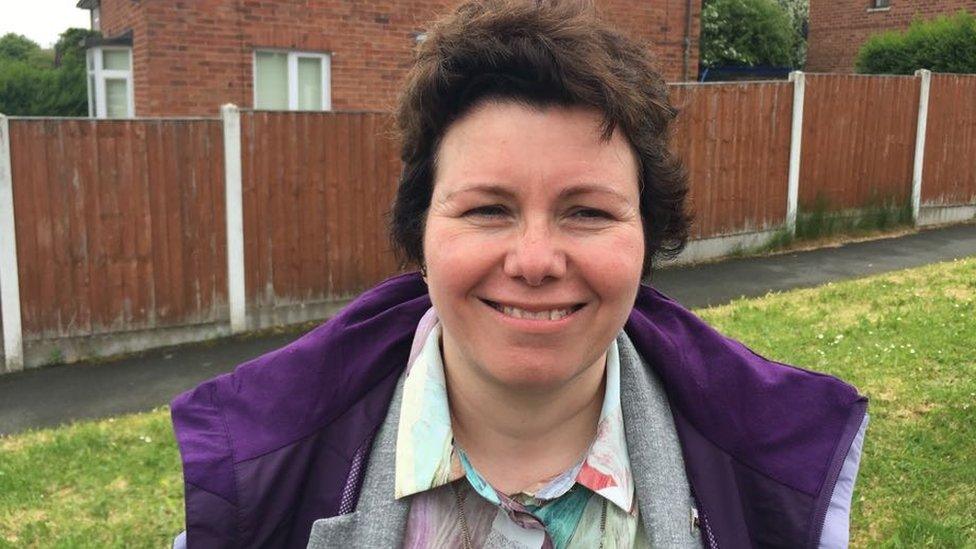
Susan Elan Jones, of Labour, is defending the Clwyd South seat during this general election.
She has won here twice before - in 2010 and 2015 - but acknowledges this will be her toughest election yet.
I met her and her campaign team in the drizzle in Rhosllanerchrugog.
"It is definitely going to be tougher than the last two elections, which is why we are going out for every vote, which is why I'm asking people who support some of the other parties to vote tactically," she said.
"I'm also basically telling people 'do you really want an outside candidate - which is what the Tories have got representing you round here - or do you want someone from the area who will always put this area first?'"
I head west to meet the Conservative candidate, Simon Baynes, knocking on doors in a damp Llangollen.
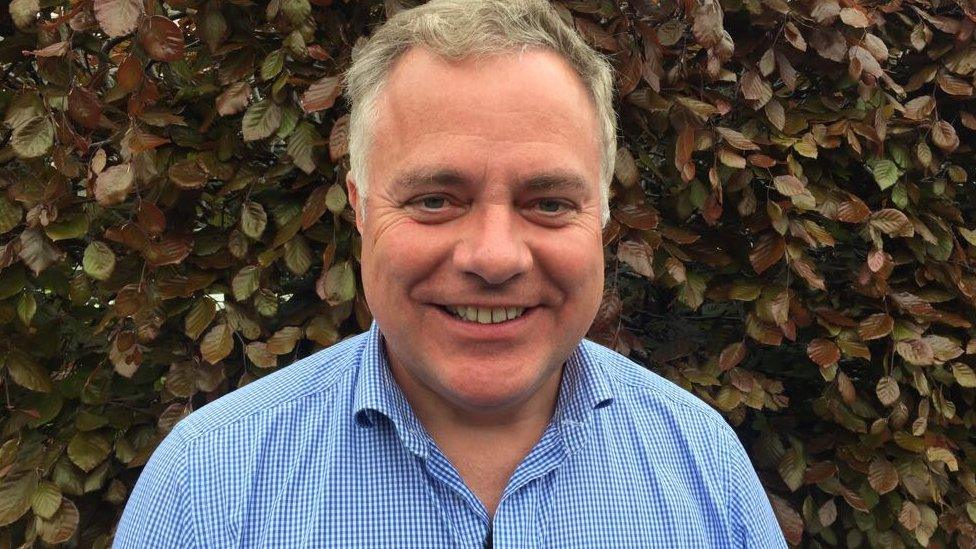
Simon Baynes is looking to overturn a 2,400 Labour majority in Clwyd South
Susan Elan Jones' leaflets tell voters Clwyd South is a two-horse race between Labour and the Conservatives. Simon Baynes agrees.
"I think that the key question in most people's minds that I've met on the doorstep is the respective merits of the Prime Minister Theresa May and the leader of the opposition Jeremy Corbyn and a lot of people are making their decision on the basis of that comparison," he said.
However, he does not agree with the Labour candidate that he is an "outside candidate".
"I grew up a few miles south of the constituency at Lake Vyrnwy, where my father ran the hotel. I've lived in these parts all my life and I consider myself to be from the local area," he said.
While Labour and Conservative candidates are posting their leaflets in the Clwyd South drizzle, the Liberal Democrat candidate Bruce Roberts is still waiting for his leaflets to arrive.
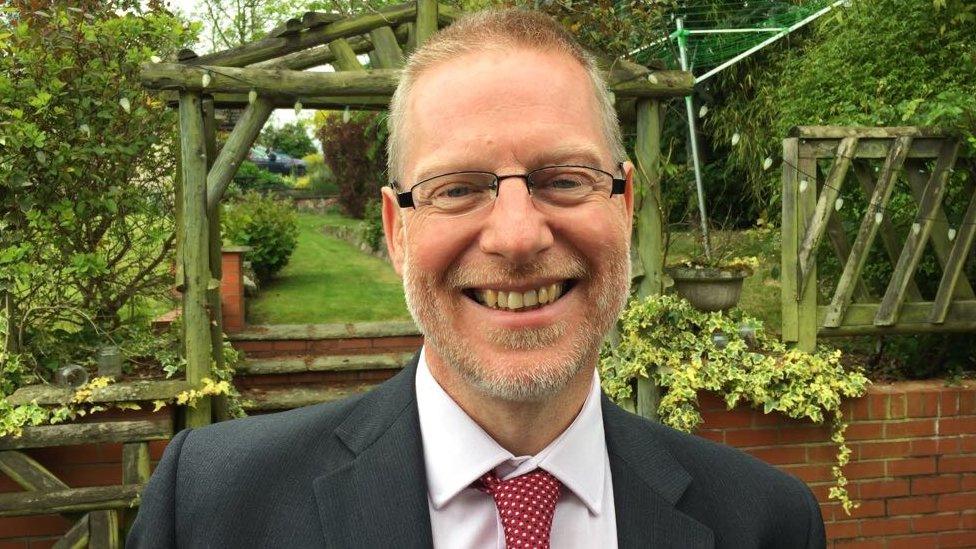
Bruce Roberts, of the Liberal Democrats, is focused on Brexit in his campaign
He does not need leaflets to tell me the key issue of his campaign, though: Brexit.
"Given that 48% of the country voted to remain and the Lib Dems are the only party really standing for that, I think there is a definite optimism within the party that we can capture that vote and get enough members of parliament in order to either stop Brexit or ameliorate the difficulties we are going to have and try and avoid a very hard Brexit," he said.
Meanwhile, Chris Allen is standing in his first election for Plaid Cymru.
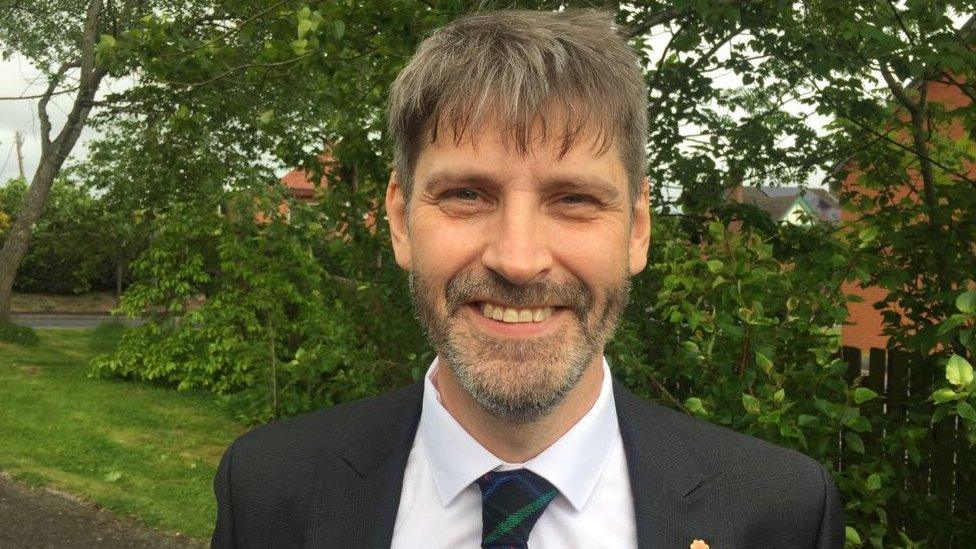
Chris Allen believes his main competition in Clwyd South is the Conservative party candidate
He has been out and about in the constituency in his very own battle bus - an old VW camper van packed full of his election placards.
"I think it is a two-horse race (in Clwyd South) but I think it is between the Tories and Plaid.
"I think Labour, being as disunited as they are, I think it's opened up a good opportunity for us," said Mr Allen.
UKIP came third in Clwyd South in 2015 with 5,480 votes and the party candidate in 2017 is Jeanette Bassford-Barton.
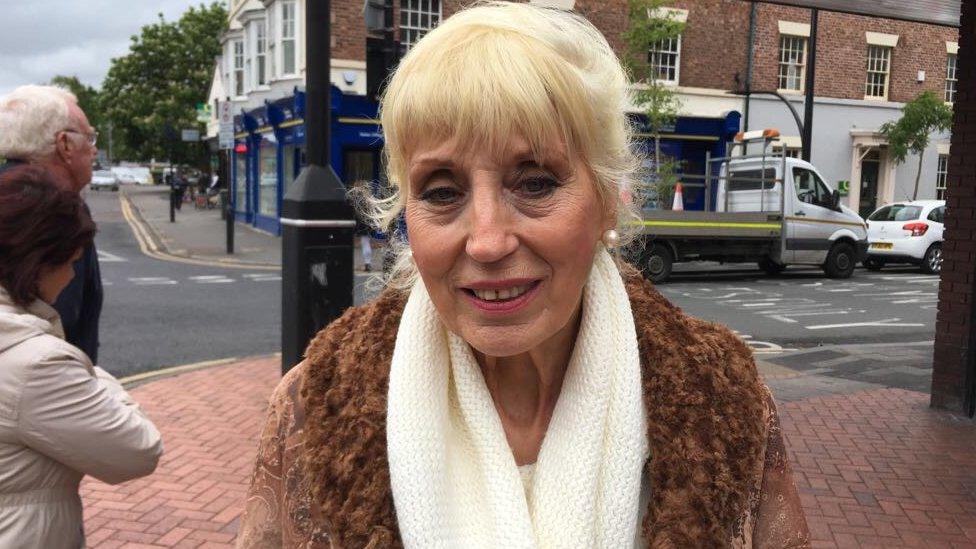
Bassford-Barton is hopeful UKIP can replicate its previous performance in Clwyd South
"I'm sure it can be repeated," she said. "We have a very strong electorate in Clwyd South and the election at the moment is very much focussed on Brexit.
"UKIP is the party of the people, we have the people of the United Kingdom at heart and it's what is in their interests and what is best for them, so it is up to our branch here going out, meeting with people, and letting them know what we stand for."
Retired politics lecturer, Rod Playford, who lives in the constituency, said the big issue is "what is going to happen to the UKIP vote" in this election.
He added: "At the moment, it seems to be collapsing generally around the country, and it was 13% of the vote here (in 2015) and the difference between Labour and Conservative in this constituency - a swing from Labour to Conservative of 4% would change the seat."